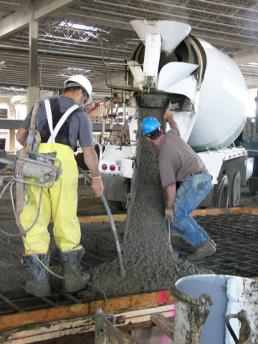
|
Who Should Attend Designers: Architects, engineers, building officials, building owners, and property managers will benefit by increasing their under-standing of the principles of quality concrete construction in today’s fast changing construction industry. Producers/Technicians Concrete manufacturers, batch plant personnel, quality control laboratory technicians, concrete contractors, and concrete field personnel will benefit by understanding how each member of the construction team contributes to quality concrete practice. |
|
Increase your understanding of how to ensure quality materials and workmanship with this versatile construction material. |
Concrete:Principles and Practice |
|
■ Fundamentals of Concrete · Materials of concrete · Chemical science of concrete · Water/Cementious materials ratio ■ Placing & Finishing Basics · Avoiding Segregation · Proper vibration · Effective curing ■ Hot weather concreting ■ Cold weather concreting ■ Quality Control Testing |
|
Today’s concrete mixes are more complex than ever, and an increased awareness of and interest in obtaining superior concrete characteristics has moved many building owners to demand exacting standards for their projects. Understanding what makes good quality concrete and the effects of proper placing and finishing techniques is essential to insuring that concrete placed today will not only meet the contract specifications but will also provide outstanding service and customer satisfaction for years into the future.
|
|
Concrete: Principles and Practice introduces participants to how the materials of concrete react together to produce a durable, high-strength building material. Participants are instructed in the fundamental design of concrete and review the effects of altering the design ratio of those materials. A review of placing and finishing procedural basics expose participants to the proper handling of quality concrete materials and help them to understand their role in the construction of high-quality, durable concrete building elements. Understanding Quality Control tests and their place in specifications and building codes can prevent issues that often arise in today’s litigious environment. |
|
Earn Continuing Education Credit By attending this course, you will earn .4 Continuing Education Units (CEU), 4 AIA Learning Units (LU), or 4 PE Professional Development Hours (PDH). |



